Fair points. But I need 3TB minimum on my desktop machine. I have 2 NAS' with 6TB and 3TB RAID arrays. Yes I can get by with 8gb of ram but I keep a ton of stuff open. It's slow. 16gb is probably the right amount but with upgradable ram 8 can get 64 for $200 which is well worth it to me. None of this is possible within my budget on new Macs, whereas on any normal hardware platform it's pretty affordable. You might want to go back and look at Mac ram and ssd prices and compare them to market prices to see how out of hand they've become. It's like a 10x multiple in some cases. The one area I don't need to go big is on CPU as nothing I do is compute heavy, which is of course the one area where Apple doesn't charge an absurd premium.
If nothing else it enforces readable code which I think is a good thing.
You don't really think they would have paid that money to other artists rather than taking it as profit do you? You can't possibly really think that, can you?
Yes, that's what they strive for today but generally are not able to achieve. Better accuracy on the tracker would allow better accuracy on the room tracking, since to do that you essentially need quite accurate triangulation. You've got to multiply the innacuracy of 3 trackers together and that's the innacuracy of the whole system. If each can be off by one meter, then you have a ~3 meter circle in which the thing can actually track you with confidence. Which is not enough to reliably say which room you are in. a 3cm circle would definitely be enough. Probably you could get by with up to 5-10 cm and still do pretty well.
Very nice for home automation- have your music and lights follow you around the house for example. Check out Room Assistant
I only buy stuff that runs on standards and is accessible by FOSS or open protocols. I've never had to retire something because of the decision of a tech company.
Plexamp is so close but they don't allow you to sync your whole music library.
Immich looks nice I will try it out.
If my job weren't so heavily focused on Outlook and doing things quickly and efficiently there, I wouldn't be such a snob. I am just quicker on local software and use a lot of local things like many windows, drag and drop between windows, etc. Every time I tried o365 I ran into some sort of major blocker to my workflow pretty fast (like within hours). If workflow and throughput weren't so important to my job, I wouldn't mind, but it gets me in trouble at work if things don't work smoothly. I can probably grab a cd key from my employer or an old laptop, so I don't see this as much of a cost issue as it is to max out a mac with RAM and HD.
Solid advice, thanks. Winapps looks really promising for those things where there is just no other option. I will have to give that a test run.
I run office for Mac. It's far inferior to the windows version but it gets the job done for the minority of time I work from home.
I look at vendor lock in more as giving you proprietary file types or other data that simply won't work on other systems. I've been very careful to avoid that by using DRM-free media exclusively for example. Smart playlists and those sort of things are features that can and have been delivered on multiple platforms. The only place where I'd say I'm truly "locked in" is in Echange server integration, but that's a choice my work made which I have no control over.
It's the lack of anti trust enforcement in the USA that causes this. There is little to no competition left in many markets.
I honestly couldn't give 2 shits. IT allows it so I'm sure they have their methods of securing things. It's not a small company.
I have a company laptop. I leave it at work.
I'm sure this will happen over time, but I need to find some way that I can do my most common tasks first or the migration will never happen.
I forgot about this. Will look into it again, thanks.
Plex amp unfortunately does not allow syncing the whole music library locally. Other than that it looks perfect.
The playlists are the problem for music.
I will look into OnlyOffice. Do they have an outlook replacement?
I checked out onlyprism, it could concievably do the job.
Probably one of the best responses so far, no idea why you are getting downvoted. I will look into it and get back to you.
Okay, all you who post on every post "you should just switch to Linux". Here's your chance. I'm someone who really does want to run Linux on the desktop. I run Linux servers at home, was a Unix sysadmin for years running Linux on the desktop in the '90s. But now I'm in sales and run Windows at work (actually very happily with some help from StartAllBack and Rufus).
I want to replace my Macs at home. Since they removed upgradable RAM and disk, I am no longer willing to pay the high tax for the few little things they do better. But there is some functionality I just cannot seem to find replacements for. This is where you folks who say "I should just switch to Linux" come in. Tell me how please:
Requirement 1) I have heavily invested in my local music library on iTunes. 1200 albums. I have little to no interest in streaming services. I want to organize my music with * ratings from 1-5 and from that have smart playlists that autopopulate and sort themselves by * ratings and genre. I have more than 40 of these types of playlists and it's completely unworkable to populate them manually.
Requirement 2) I must be able to sync my music library in full to my phone. I use an iOS phone now, but I could even be convinced to switch to Android if there was a good solution. I am not willing to go in and select 100 different playlists manually to sync. It must completely replicate what's on my desktop on my phone, 100% locally, including all the afformentioned smart playlists. I travel a lot for work and want my music always available even when there's no network.
Requirement 3) My job really doesn't require much more than Office and a browser, but it requires very heavy use of those things. Firefox is fine for the browser, so no trouble there, but I need full fledged Outlook, OneNote and most of the features of Excel at a minimum. Word I can take a bit of a hit on as long as I can save something that others can open. Ideally I would want to run the Windows version of these tools. I will not be able to live with only the browser versions, that I'm 100% sure of.
Requirement 4) I'd really like some sort of decent photo management tool. I can probably manage just by keeping them organized in folders and having google photos suck that in, but I don't much trust Google, so would like to have a second tool that can also do a good job at replacing MacOS' Photos app. AI image recognition and search a-la Google Photos would be the cherry on top.
Requirement 5) I need to be able to scan in batches from my Fujitsu ScanSnap scanner into Evernote. I use this on mobile, other OS', etc. and have a lot of organization built into it now that I really don't want to try to migrate from.
That's it. 5 high level requirements that must be met. Is it possible?
Moscow and Pyongyang have a wide-ranging deal covering sectors including education, agriculture and tourism.
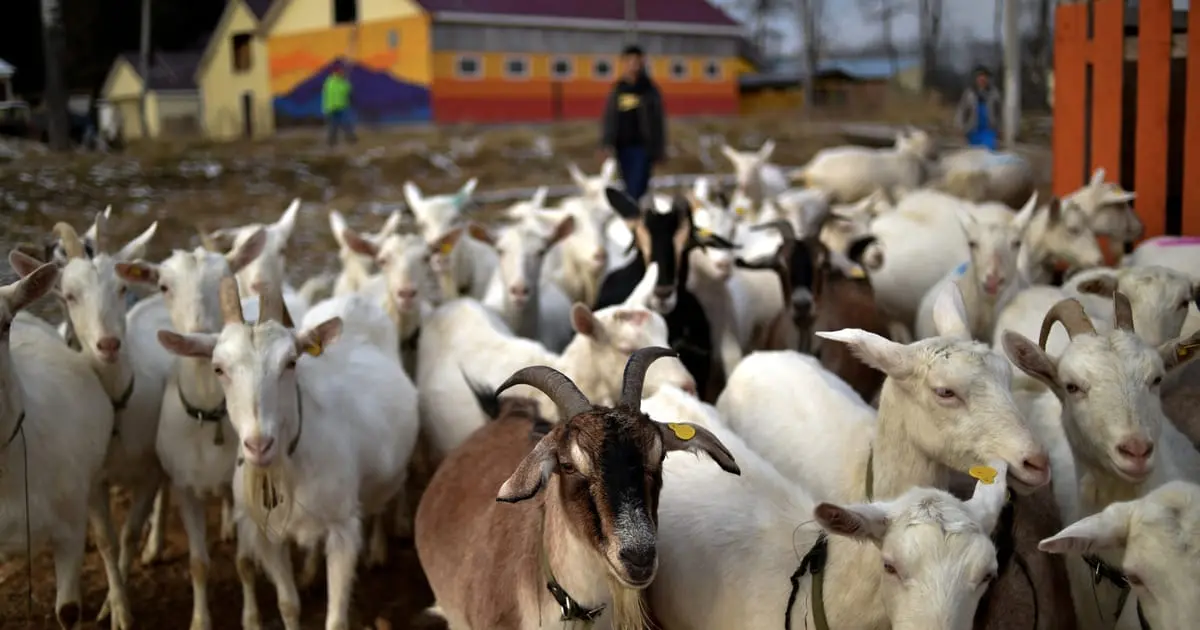
cross-posted from: https://lemmit.online/post/3674458
> ##### This is an automated archive made by the Lemmit Bot. > The original was posted on /r/ukrainianconflict by /u/iLatvian on 2024-08-14 10:46:52+00:00.
An SBU source called it the largest attack on Russian airbases during the war.

cross-posted from: https://lemmit.online/post/3674460
> ##### This is an automated archive made by the Lemmit Bot. > The original was posted on /r/ukrainianconflict by /u/KI_official on 2024-08-14 11:34:39+00:00.

cross-posted from: https://lemmit.online/post/3600164
> ##### This is an automated archive made by the Lemmit Bot. > The original was posted on /r/funny by /u/lol_camis on 2024-08-05 03:35:48+00:00.
Satellite images have been released of the consequences of yesterday's attack by Ukraine on the Russian Morozovsk airfield in Rostov region. — Ukrinform.
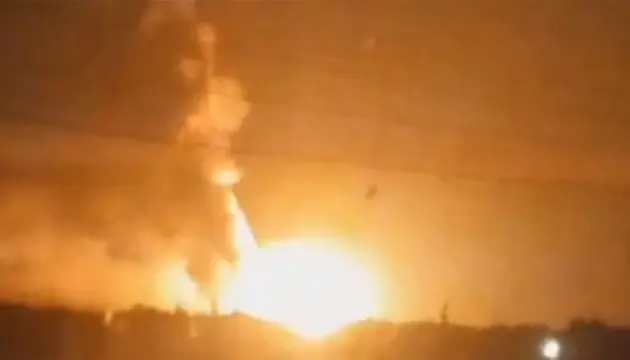
cross-posted from: https://lemmit.online/post/3600325
> ##### This is an automated archive made by the Lemmit Bot. > The original was posted on /r/ukrainianconflict by /u/MantasChan on 2024-08-05 05:27:52+00:00.
Russia’s Central Bank has raised its key lending rate to the highest level in more than two years to stem soaring inflation in an overheated economy hit by Western sanctions in response to Moscow’s military action in Ukraine.

cross-posted from: https://lemmit.online/post/3523779
> ##### This is an automated archive made by the Lemmit Bot. > The original was posted on /r/ukrainianconflict by /u/doughtnut2022 on 2024-07-27 00:45:13+00:00.
cross-posted from: https://lemmit.online/post/3524209
> ##### This is an automated archive made by the Lemmit Bot. > The original was posted on /r/technology by /u/wish-u-well on 2024-07-27 02:37:53+00:00.
The hope that Beijing would distance itself, however minimally, from Moscow has finally been extinguished. Europe needs to adjust its approach accordingly.
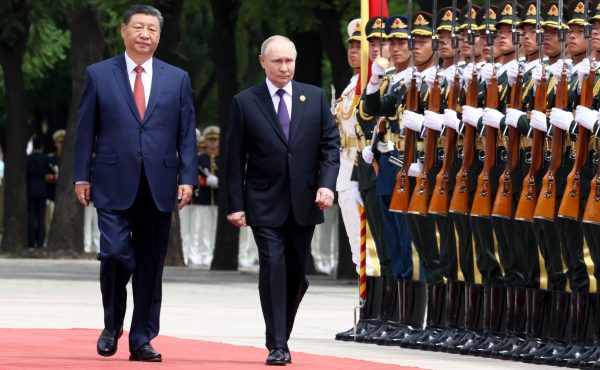
cross-posted from: https://feddit.de/post/12947956
> In the New Cold War, Europe’s Approach to China Is Already Outdated, Researchers Say > > Archived link > > The hope that Beijing would distance itself, however minimally, from Moscow has finally been extinguished. Europe needs to adjust its approach accordingly. > > Written by Maximilian Mayer, professor of International Relations and the Global Politics of Technology at the University of Bonn, Germany • Emilian Kavalski, NAWA Chair professor at the Jagiellonian University in Krakow. Poland. > > That Russian President Vladimir Putin is preparing for a long war not just in Ukraine, but against Western democracies more broadly, should hardly be news, even if many in Europe and North America refuse to acknowledge this fact. At least since the 2008 Russian intervention in the conflict in Georgia, Putin has condoned a series of both hot and hybrid warfare campaigns to weaken the democratic fabric of countries in Russia’s vicinity and further afield. It was recently revealed that on the eve of the full-scale invasion of Ukraine in February 2022, Russia launched a spacecraft to test nuclear anti-satellite weapons, further evidence of Moscow’s plan for long-term confrontation with the West, beyond what it considers its “near abroad.” > > Yet, that China is willing to fully back Putin’s effort to threaten and undermine liberal democratic states is certainly a newsflash. Ever since Russia’s full-scale attack on Ukraine in February 2022, Beijing has been treading carefully to avoid perceptions that it is overtly supporting Moscow and has been claiming to occupy a neutral position – even if China has been leaning toward Russia’s side. > > The reason seems obvious. Despite increasing tariffs, anti-subsidy probes, and European derisking strategies, both China’s export-oriented economy and the bottom line of most Chinese companies are still tied to trade with Western firms as part of global supply chains. It was therefore common sense to assume that Beijing would move cautiously to avoid jeopardizing its economic security in the context of an increasingly unpredictable domestic market and escalating economic tensions with the United States. > > However, either such assessments have been misplaced or China’s wariness appears to have evaporated. The spark of hope that Beijing would distance itself, however minimally, from Moscow has been finally extinguished. > > The most recent joint diplomatic statement by Putin and Chinese President Xi Jinping suggests that China and Russia, although not formally allies, have formed a bloc-like alliance that is geared toward undermining security in Europe. The joint statement issued after last month’s meeting between Putin and Xi in Beijing explicitly stated that both partners “believe that all nuclear weapons states… should refrain from infringing upon each other’s vital interests through the expansion of military alliances and coalitions, as well as the establishment of military bases in close proximity to the borders of the other nuclear weapons states.” In other words, this passage spells out what China understands by insisting upon the “legitimate security interests and concerns of all countries.” > > The comprehensive clarity of the lengthy statement goes beyond the mere reiteration of Putin’s talking points. It boils down to an explicit statement of intent – namely, Beijing’s intent to work with Moscow in undermining Europe’s security at a moment when the EU has communicated that Russia’s war against Ukraine is an “existential” threat to Europe. China is not only ready to challenge NATO’s guarantee for the security of states in Eastern Europe, but also the increasing activities of the Western European members of the alliance on NATO’s eastern flank in support of Ukraine. > > It is significant that Xi’s meeting with Putin came on the heels of the Chinese leader’s visit to Serbia and Hungary. This trip was indicative of China’s strategic direction. Xi visited Serbia on the 25th anniversary of NATO’s bombing of the Chinese embassy in Belgrade, something that he stated the Chinese people will “never forget.” In Hungary, Xi signed a new security pact, which would allow Chinese law enforcement to conduct patrols in the country and install surveillance equipment. However, as revelations of a number of secret annexes to the pact suggest, Chinese police officers may avail themselves of the Schengen travel arrangements and visit other European countries to conduct “secret missions,” including arresting dissidents and bringing them back to Hungary before taking them to China. > > The joint statement between Putin and Xi is quite unambiguous that the strategic infrastructure of Western “military alliances” is perceived as a threat to both China and Russia. The call for the establishment of loosely defined buffer zones in the peripheries of nuclear powers is surprising, in that it goes against China’s self-avowed principle of non-interference in the domestic affairs of states and contradicts the habitually repeated Chinese warnings against “Cold War mentality.” More than that, this statement also indicates that Beijing and Moscow are throwing under the bus the national sovereignty of the smaller states in between. Instead, might makes right – small states will be subject to the whims of great powers and their spheres of influence. > > It is not far-fetched to interpret the Sino-Russian statement as Beijing’s legitimization of Moscow’s brinkmanship in Europe, short of using nuclear weapons. It is no coincidence, that immediately after the Putin-Xi meeting, Russia’s defense ministry posted a draft proposal for the revision of the country’s maritime borders in the eastern Baltic Sea. A few days later, in another test of Western resolve, Russian border guards removed dozens of light buoys demarcating the Estonia-Russia border along the Narva River. > > While the full implications of the joint statement will become more obvious in the coming weeks and months, several takeaways help to shed light on the contours of Sino-European relations during the new Cold War. > > First, in the midst of mutual retaliatory rhetoric about trade restrictions, this is China’s loudest signal yet that its strategic outlook is officially framed from the perspective of a new Cold War with the West. While Russia might be playing a “junior partner” in the alliance, it is Beijing that is following Moscow’s lead into uncompromising strategic antagonism with the West and especially the European Union. This does not mean that there is ample trust between Russia and China, but the logic of a bloc confrontation is underpinning Beijing’s commitment to cooperate with Moscow ever more closely. The symbolic gesture of Putin’s official visit to the Harbin Institute of Technology, which could indicate more Russian access to Chinese defense technology, has not been lost on European observers. > > In the new Cold War, Russia is more important to the Chinese leadership than Europe. The relevance of bilateral relations goes beyond the reality of growing economic complementarities and trade figures between the two Eurasian giants. The joint statement is the strongest indication yet that China is not averse to forming a military alliance with Russia. The document clearly spells out that bloc confrontation is the new game in town, despite Chinese reassurances about further economic opening and a charm offensive to European businesses. In France, Xi only offered a vague answer to European Commission President Ursula von der Leyen’s plea to limit the deliveries of dual use goods to Russia. Beijing, it seems, has already priced in the inadvertent “loss of Europe” as the cost of its partnership with Moscow. > > In the new Cold War, Eastern Europe and the Indo-Pacific are part of a united Eurasian strategic theater. Geographically, just like the 20th-century Cold War, the new one reflects the expansive logic of malleable buffer zones. The fault lines of the Sino-Russian confrontation with the West follow a north-south gradient across the landmass of Eastern Europe and a southwest-northeast gradient from the South China Sea to the Korean Peninsula. Although China has officially always rejected the connections between the Ukraine and Taiwan crises, this linkage is now more conspicuous than ever before. While such a scenario will probably be hard to swallow for Europe, it is becoming hard to ignore that China will be part of any future European security order. Europe, given its overreliance on U.S. security provision, has less wiggle room and no choice but to get closer with the United States. > > Europe’s security requires significant realignment of its strategic focus. Faced with large-scale crises such as migration, economic inequality, climate change, and populism, European policymakers struggle to formulate a coherent strategy. The prospect of a strengthened Russian economy and sustained armed conflict in Ukraine presents new challenges that call on Europe to enhance its military capabilities and seriously prepare for a range of contingencies. It appears that both Moscow and Beijing are ready for the turbulence of the new Cold War. European leaders are still to fully grasp its reality. > > The joint China-Russia statement marks a world political closure. Bloc confrontation is a new reality, although the rest of the world tries as hard as possible to avoid taking sides. In the absence of significant hard power, Europe does not have the luxury of contemplating a neutral position. Economic interdependencies with China become more problematic. Trade and security policies are now not only seen as intimately entangled, but also point in increasingly contradictory directions. Current attempts at decoupling between the economies of China and the West will thus likely intensify, rendering the management of conflicts increasingly difficult. > > As the West might fracture under the pressure of multiple crises and see its resolve buckle through the constant disinformation campaigns of Russia and China, it is difficult to anticipate what trajectories the confrontation will take. In this precarious new Cold War scenario, Europe has to consider both the attitude of a new U.S. administration and Chinese views on such contingencies. > > For instance, what would leaders in Beijing view a possible “win” for China in Ukraine? Some Chinese experts are betting on a “Korean” type solution for the conflict. This would include a buffer zone between Russia and NATO in Europe and a demilitarized zone partitioning Ukrainian territory. As a result, Russia would be in a stronger position to seek domination over Eastern Europe’s states as well as pressure NATO to roll back its membership to pre-1994 levels. > > The most pressing issue along the two geographical fault lines in the coming years is keeping the new Cold War “cold” and preventing it from becoming a full-blown global hot war. Overall, there are reasons not to be overly pessimistic. The logic of nuclear deterrence is functional. China and the United States are ill-prepared to fight a war, and the risk of skirmishes in the South China Sea makes both sides more restrained. However, escalatory trends remain and flash points are multiplying, while mechanisms to avoid escalation such as monitoring, mutual surveillance programs, and regular military-to-military talks are few and far between. > > For Europe, to maintain a sense of pragmatic optimisms is more difficult. China and the United States can rely on historical precedent to ensure their coexistence as superpowers and create, for example, their own version of SALT. Europe, however, does not possess historical templates and its tripartite approach to China – as partner, competitor, and rival – is woefully outdated because it lacks a security angle altogether. > > Europe needs to quickly come to grips with a China that both openly supports Russia’s imperial war and works with Moscow to end NATO’s presence in Eastern Europe.
In ‘mirror world’, Trump is martyr and Biden is autocrat, as calls for violence erupt on internet after ex-president’s conviction

cross-posted from: https://lemmy.sdf.org/post/17713638
> ‘No way out without bloodshed’: the right believe the US is under threat and are mobilizing > > ““If we jail Trump, get rid of Maga, end the electoral college, ban voter ID, censor free speech, we’ll save democracy,” says one meme in a QAnon channel on Telegram that depicts Biden in a Nazi uniform with a Hitler mustache” > > Apparently they at least understand their opponent’s view .
cross-posted from: https://lemmit.online/post/3069765
> The United States faces a shortage of energetics and propellants for munitions > > ##### This is an automated archive made by the Lemmit Bot. > The original was posted on /r/ukrainianconflict by /u/Mil_in_ua on 2024-06-01 14:38:27+00:00. >
The US is studying the Ukraine war for clues on conflicts of the future.
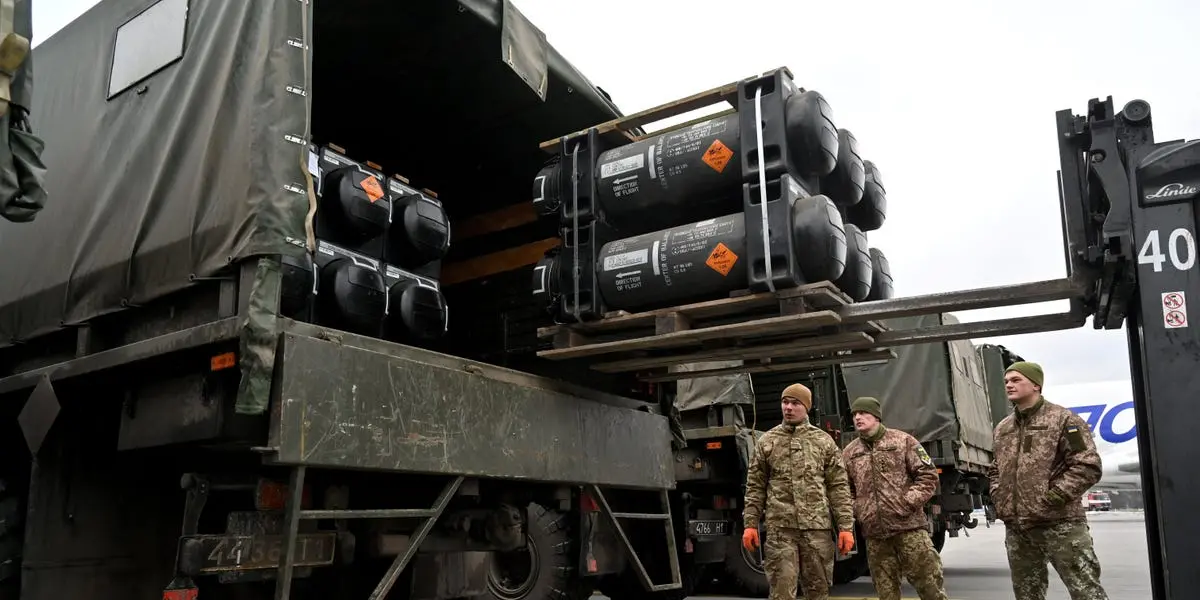
cross-posted from: https://lemmit.online/post/2950586
> ##### This is an automated archive made by the Lemmit Bot. > The original was posted on /r/ukrainianconflict by /u/Independent_Lie_9982 on 2024-05-19 06:41:34+00:00. >
Over the winter months, Ukraine's armed forces suffered a "critical" shortage of artillery shells, in large part due to delays in U.S. military aid.
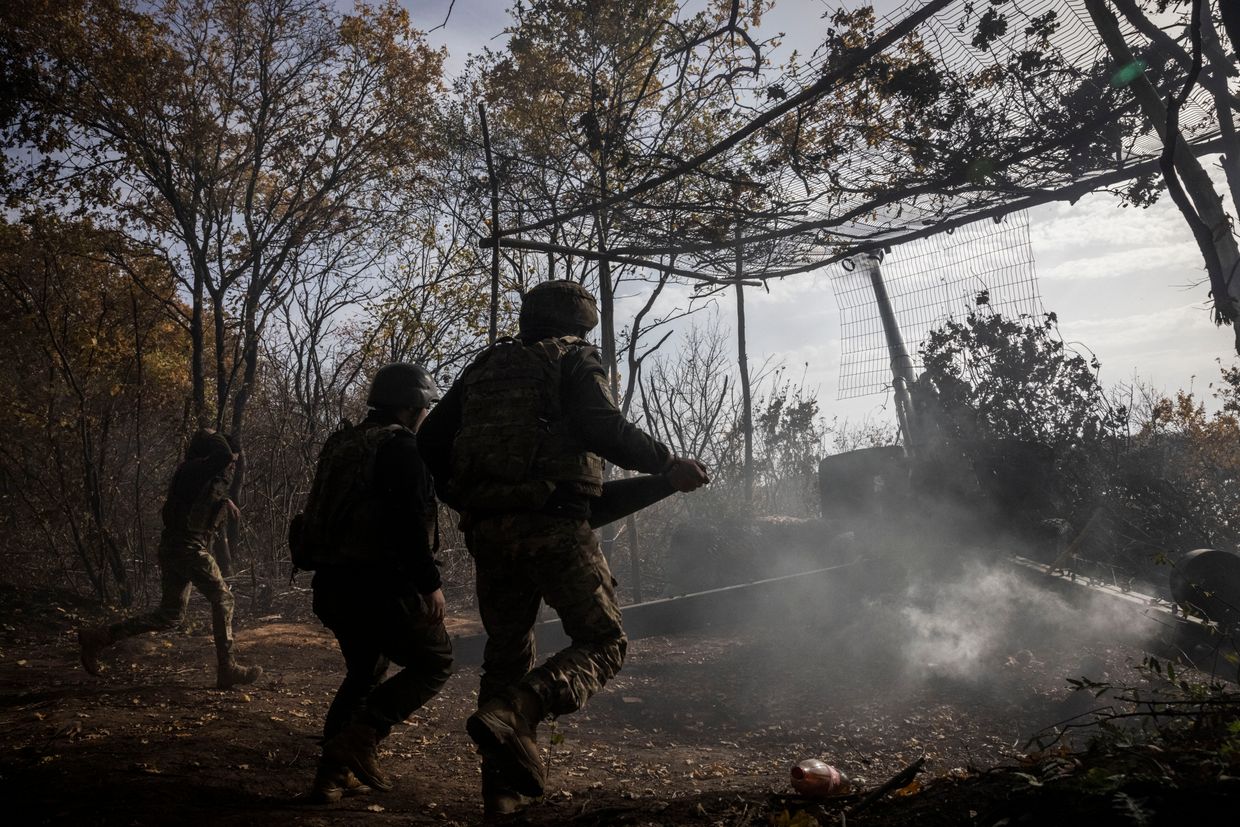
cross-posted from: https://lemmit.online/post/2934684
> ##### This is an automated archive made by the Lemmit Bot. > The original was posted on /r/ukrainianconflict by /u/Baysdarby on 2024-05-17 09:34:27+00:00. >
US Secretary of State Antony Blinken hinted on Wednesday that Ukrainian forces could bomb Russia with military materiel supplied by the US, something they had previously been forbidden from doing.
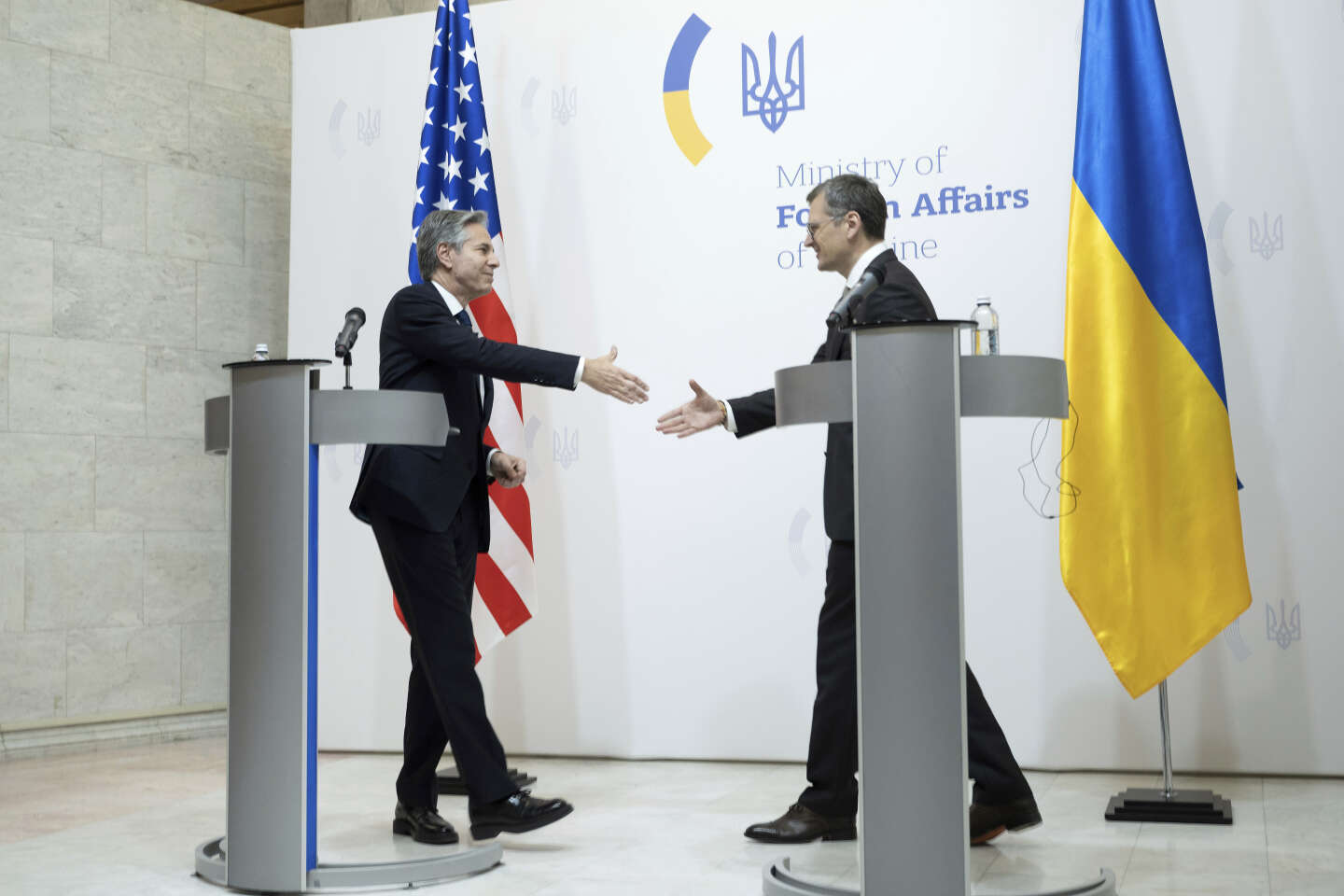
cross-posted from: https://lemmit.online/post/2928184
> ##### This is an automated archive made by the Lemmit Bot. > The original was posted on /r/ukrainianconflict by /u/Watcher_2023 on 2024-05-16 14:49:01+00:00. >

cross-posted from: https://lemmit.online/post/2916847
> ##### This is an automated archive made by the Lemmit Bot. > The original was posted on /r/mildlyinteresting by /u/Rectile_Reptile on 2024-05-15 09:26:14+00:00. >
The vast majority of people have an ongoing conversation with themselves, an inner voice, that plays an important role in their daily lives. But between 5-10 per cent of the population do not have the same experience of an inner voice, and they find it more difficult to perform certain verbal memory...

cross-posted from: https://lemmit.online/post/2916897
> ##### This is an automated archive made by the Lemmit Bot. > The original was posted on /r/science by /u/mvea on 2024-05-15 10:17:06+00:00.

cross-posted from: https://lemmit.online/post/2897862
> ##### This is an automated archive made by the Lemmit Bot. > The original was posted on /r/funny by /u/PillowPete on 2024-05-13 06:11:05+00:00. >
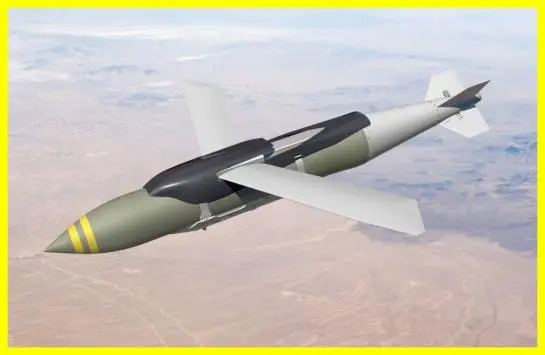
cross-posted from: https://lemmit.online/post/2842281
> ##### This is an automated archive made by the Lemmit Bot. > The original was posted on /r/ukrainianconflict by /u/ua-stena on 2024-05-05 08:07:53. >
Colombian President Gustavo Petro, a staunch critic of Israel’s war in Gaza, says the Israeli government is ‘genocidal’.
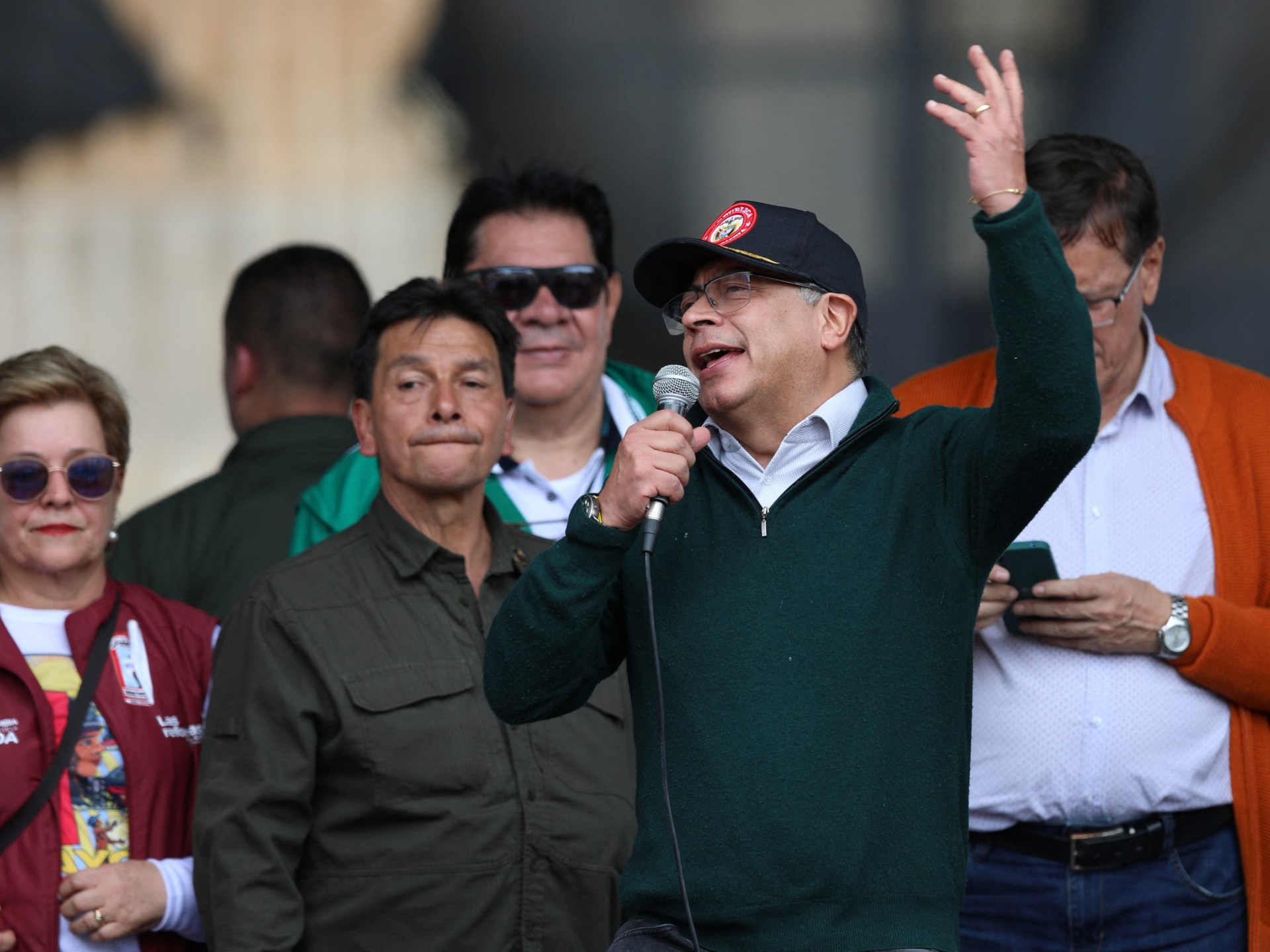
cross-posted from: https://lemmy.ml/post/15135996
> Colombia to cut diplomatic ties with Israel over Gaza war, Petro says > > > Colombian President Gustavo Petro has announced plans to cut diplomatic ties with Israel over its war in the Gaza Strip, which human rights advocates and other experts have warned could amount to genocide. > > > > Speaking to a crowd marking International Workers’ Day in Bogota on Wednesday, Petro said countries cannot be passive in the face of the crisis unfolding in Gaza. > > > > “Here in front of you, the government of change, of the president of the republic, announces that tomorrow we will break diplomatic relations with the state of Israel … for having a government, for having a president who is genocidal,” Petro said. > > > >A left-wing leader who came to power in 2022, Petro is considered part of a progressive wave known as the “pink tide” in Latin America. He has been one of the region’s most vocal critics of Israel since the start of the Gaza war. > > > > In October, just days after the conflict began, Israel said it was “halting security exports” to Colombia after Petro accused Israeli Defence Minister Yoav Gallant of using language similar to what the “Nazis said of the Jews”. > > > And in February, Colombia suspended Israeli weapons purchases after Israeli forces opened fire on Palestinians scrambling for food aid in Gaza — an event Petro said “recalls the Holocaust”. > > > Meanwhile, in early April, the Colombian government requested to join a case at the International Court of Justice (ICJ) accusing Israel of genocide. > > > >“Colombia’s ultimate goal in this endeavour is to ensure the urgent and fullest possible protection for Palestinians in Gaza, in particular such vulnerable populations as women, children, persons with disabilities and the elderly,” the country said. > > Archive link
cross-posted from: https://lemmit.online/post/2762418
> ##### This is an automated archive made by the Lemmit Bot. > The original was posted on /r/ukrainianconflict by /u/MaryADraper on 2024-04-26 01:07:28. >
Lithuania doesn’t often set the agenda, yet it has been warning that Russia would invade Ukraine since 2008.
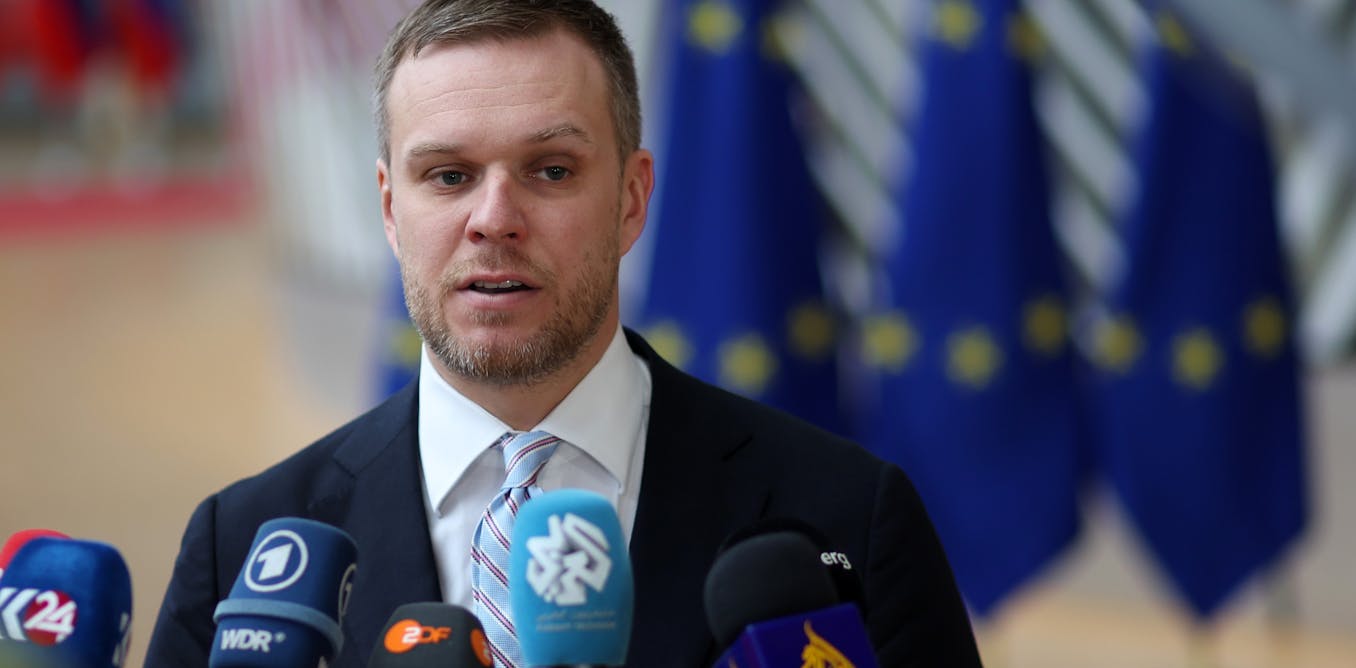
cross-posted from: https://feddit.de/post/11465777
> The EU should stop ‘westsplaining’ and listen to its smaller eastern members – they saw the Ukraine war coming, researcher says > > There is a "stark difference of opinion between countries like Lithuania, Latvia, Estonia, Poland and the Czech Republic as compared to western European countries such as France or Germany", writes Viktoriia Lapa from the Institute for European Policymaking at the Bocconi University in Italy, arguing that “westsplaining” still prevails in the European Union. > > "By 2022, Russia had launched a full-scale attack against Ukraine. Words of support came from every direction but concrete support was less forthcoming. During the first days of the war, Germany refused to send weapons to Ukraine and even prevented Estonia from sending its old howitzer artillery weapons by withholding approval," Lapa writes. > > "Lithuania, meanwhile, along with Latvia, Estonia and Poland, were sounding the alarm about the threat the situation posed to the rest of the region and called for Europe to support Ukraine “with every means available”. For many in the region, Europe should commit unambiguously to helping Ukraine win the war." > > "Until recently, even French president Emmanuel Macron was suggesting that Ukraine should compromise on some of its sovereignty to accommodate Putin’s demands. Such comments were coldly received in Baltic and eastern European states." > > "When Macron changed his strategy to say that he did not rule out sending troops to Ukraine, he faced backlash from several European capitals. However, he found an ally in Lithuania." > > "In a positive sign of recognition, EU Commission president Ursula Von der Leyen mentioned in her annual state of the union address in 2022: 'We should have listened to the voices inside our union – in Poland, in the Baltics, and all across central and eastern Europe.'"